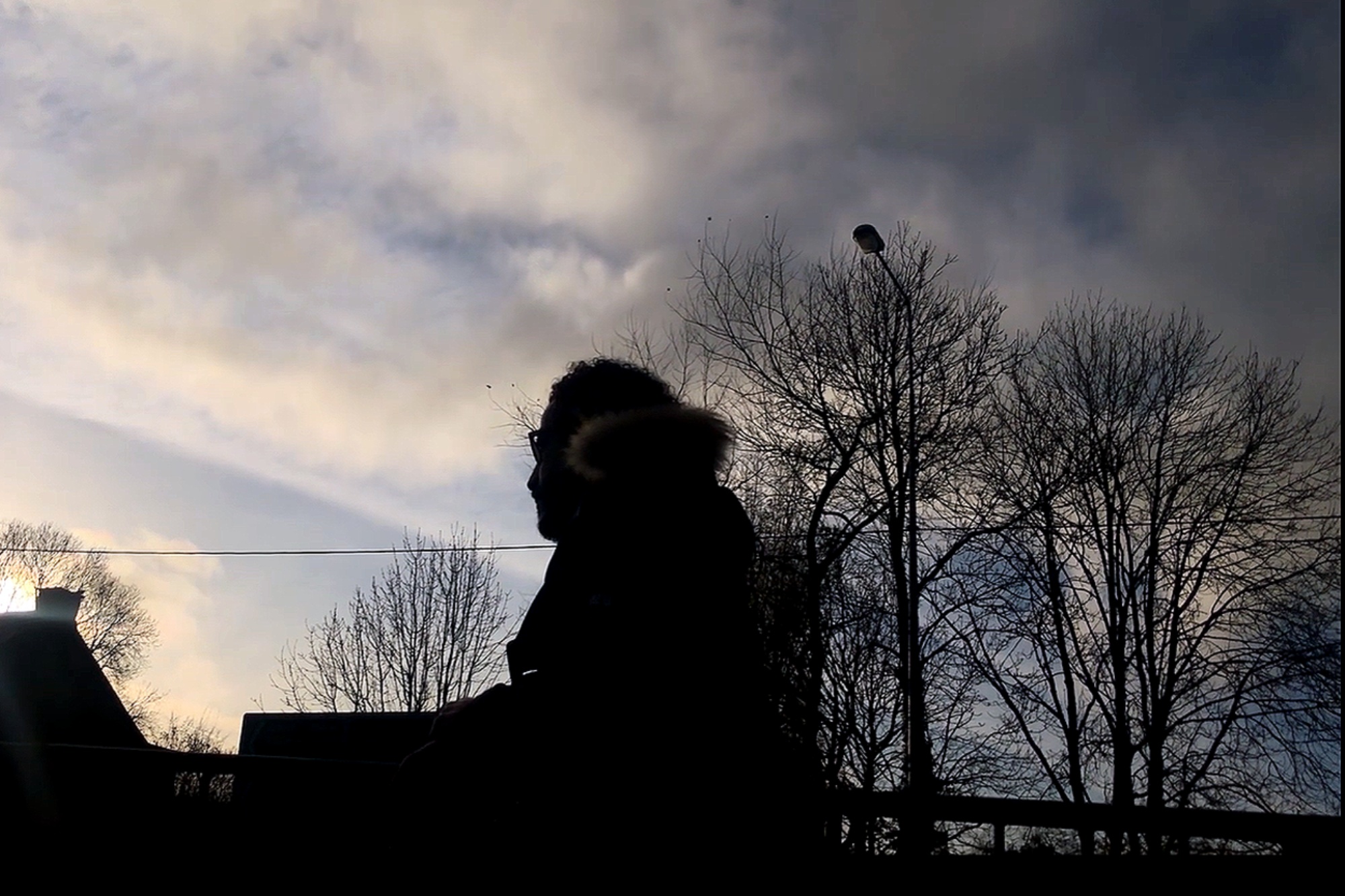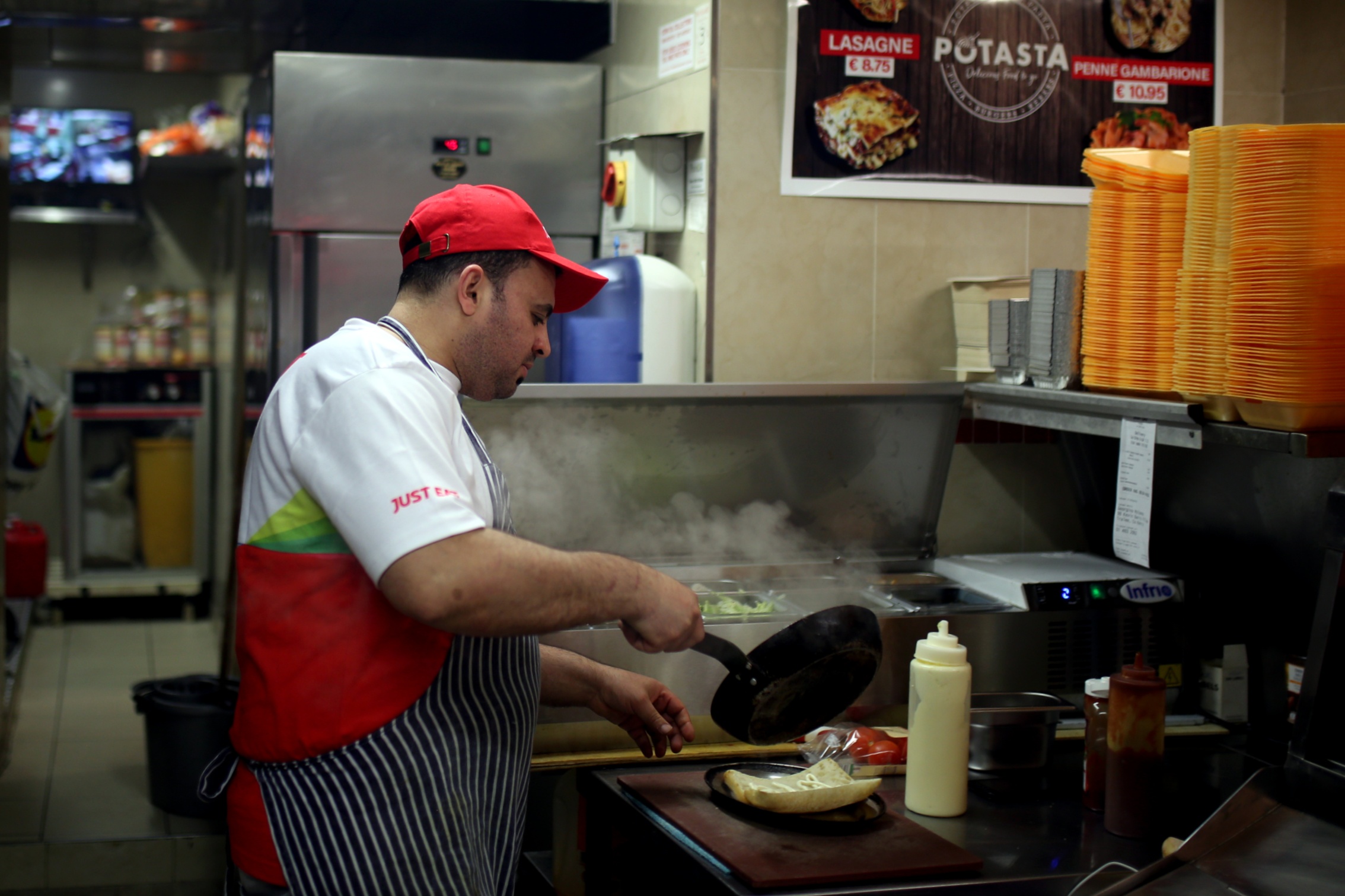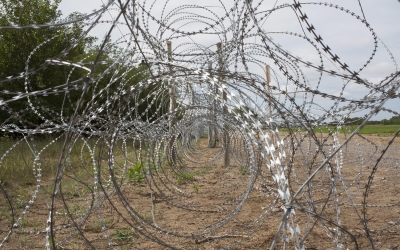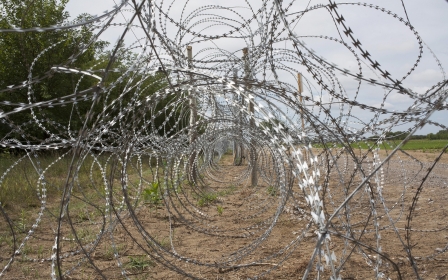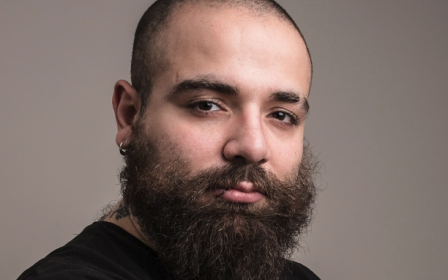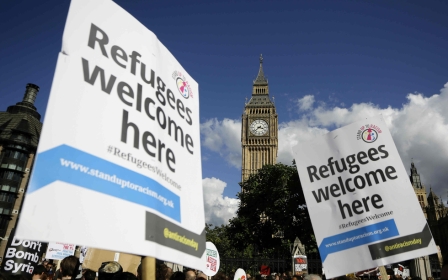Uncertainty and despair: The struggles of asylum seekers in Ireland
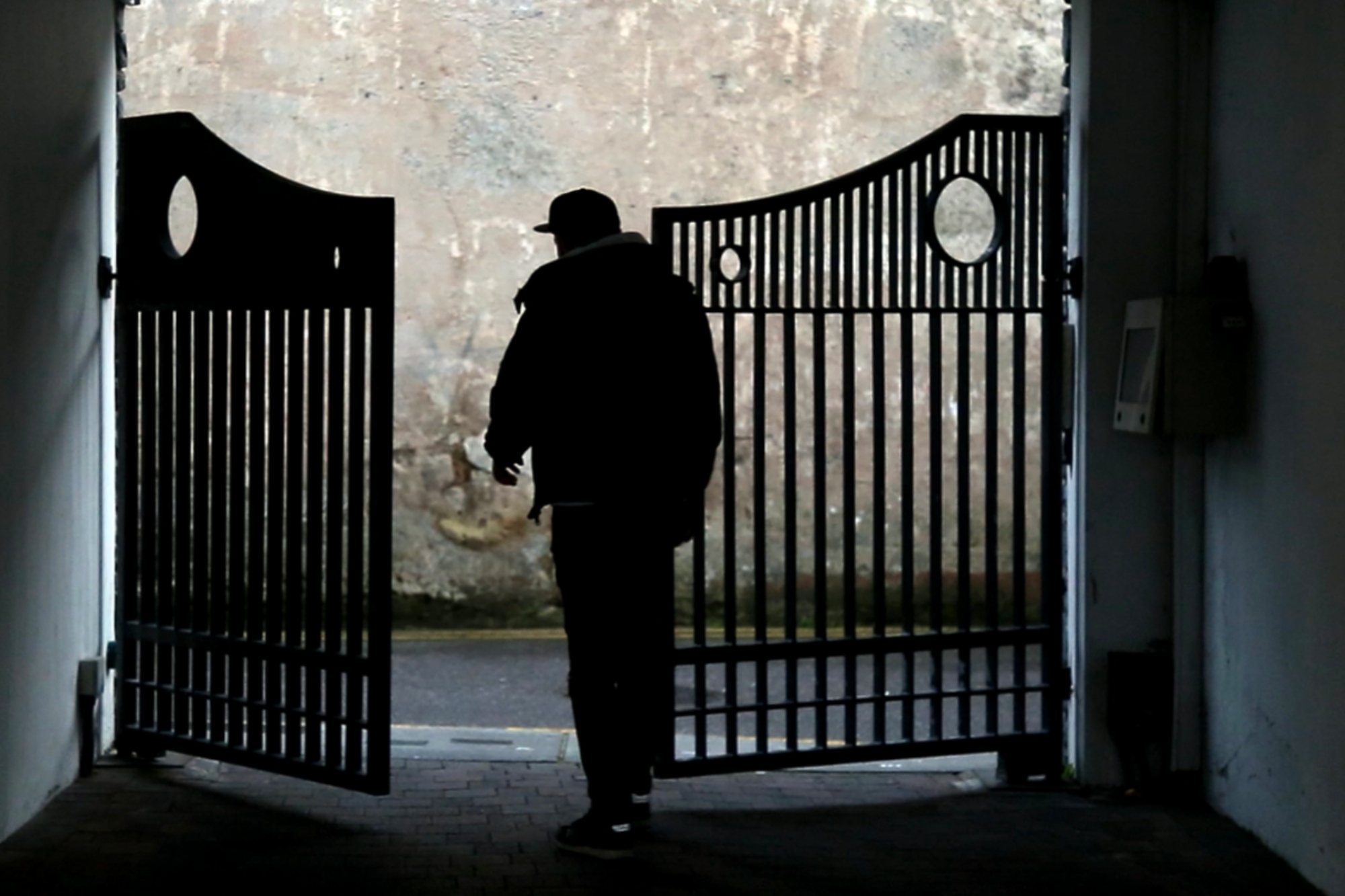
“I hope I can get my refugee status soon. Then I would be able to meet with my beloved parents whom I haven’t seen in three years," Eyhab Najaar Kalani told Middle East Eye.
Kalani, 27, was born in the Syrian capital Damascus where he lived with his parents until his last year of university in 2017 when he reached military service age - a requirement for all Syrian men.
Kalani didn’t want to be involved in the war, so he found a way to flee by travelling to Venezuela - where his mother has roots. Once in Venezuela, Kalani made a life for himself, starting his own business and settling into the community. But after a year and a half, he had to leave Venezuela after he received death threats at work from a neighbour who was a police officer, he said.
Kalani left to find safety in Ireland in 2018.
But like many others among Ireland’s more than 7,000 asylum seekers awaiting a response from Irish authorities on their cases, Kalani has found the country’s system meandering and confusing - an opacity which, some advocates say, has had devastating consequences.
New MEE newsletter: Jerusalem Dispatch
Sign up to get the latest insights and analysis on Israel-Palestine, alongside Turkey Unpacked and other MEE newsletters
‘Like a prison’
Today, Kalani lives in a shared room in Atlas House direct provision centre in Tralee, a southwestern Irish town.
"I feel that it’s like a prison. No one is allowed to visit me in my room and I am obligated to eat at specific times," he said.
Ireland’s direct provision system began in 1999, with 39 housing centres for asylum seekers operated by private companies through contracts with the Irish government.
In this system, Kalani has not only been denied a chance to work but also study - forcing him to put his dreams of continuing the studies in IT engineering that he left behind in his native Syria on hold.
"I wish to get a chance or a scholarship to continue my studies so I can be useful to the community," Kalani said.
Algerian asylum seeker Faycal Chabani, who arrived in Ireland in 2014, currently lives in a direct provision centre in a remote area outside of Cork, Ireland’s second-largest city.
Chabani used to work in social services for the disabled in Algeria, where he vocally opposed the government’s approach to accessibility and disability rights. When he found out the country’s intelligence services had a file on him, he began fearing for his life and fled the country.
Like Kalani, the former speech therapist struggles to find a job or study, he says.
While Chabani is allowed to work, he has a disability that makes it difficult for him to move about without a vehicle. Asylum seekers in Ireland are not allowed to apply for a driving licence.
For Chabani, the conditions of direct provision are the exact opposite of what officials propagate in the media regarding the integration of asylum seekers and refugees in Irish society.
In January, after six years in the Irish asylum process, Chabani finally received the much-coveted letter from the justice ministry officially granting him residency. He has yet to find independent housing outside of direct provision.
Years-long wait
In the year and a half Kalani has spent as an asylum seeker in Ireland, he hasn’t been allowed to work despite the fact that asylum seekers are able to apply for permission to do so after nine months.
He believes that his case is being delayed because Irish authorities want him to return to Spain where he stopped in transit for three hours en route to Ireland.
This is due to a European Union regulation - known as the Dublin III provision - which states that an asylum seeker must try to seek asylum in the first country he or she arrives in.
'A Filipino lady took her own life three years ago in the centre where we live as a result of depression after waiting for a decision for so long'
- Faycal Chabani, Algerian asylum seeker
Kalani says he knows many other former asylum seekers in Ireland, including other Syrians, who were granted refugee status despite having stopped in other EU countries first.
Like Kalani, 34-year-old Egyptian Alaa Bahlouan feels stuck. He is one of 6,200 asylum seekers who are currently waiting for an answer from the Department of Justice on their status.
Bahlouan fled to Ireland in January 2016 after his participation in protests opposing the country’s military-led government left him fearing for his safety.
Since arriving in Ireland, Bahlouan says he has been self-sufficient: he never stayed in direct provision, nor has he received social welfare payments, and he opened and runs his own restaurant in Tralee.
However, he has been trying to obtain legal residency, otherwise known as "Leave to Remain", for five years.
Bahlouan and four other Egyptians who spoke to MEE said it often takes at least two to three years for Egyptian asylum seekers to get a decision regarding their cases, while other nationalities usually receive responses within a year.
“I pay taxes and rent for my restaurant and for three workers working in my business, plus buying from a lot of business suppliers, and I am a volunteer with the Irish Red Cross,” Bahlouan said. “I know many people have 'Leave to Remain' status even if they don’t do anything in the country."
Meanwhile, Chabani had his application refused twice by the International Protection Office (IPO), after an IPO officer said he didn’t believe his claims for asylum. He took the case to court, where he appealed and won in December 2018. It nonetheless took more than a year after winning the appeal for the Algerian to receive the acceptance letter finalising his status.
‘’IPO processing is unduly influenced by individual employees’ moods. The employees are just bureaucrats and are not qualified to deal with people coming from hard circumstances,’’ Chabani said.
Bahlouan said that while he awaits a decision, he fears being deported by Irish authorities. If he is sent back to Egypt, he worries about his safety and future.
Risk of torture
According to Human Rights Watch, asylum seekers sent back to Egypt are at risk of torture and ill-treatment because of their past political activities, with Egyptian authorities stopping suspected opposition activists who return through Egypt’s airports since the 2013 military coup.
According to the Irish Independent, there were 860 repatriation flights in 2018 carrying deported asylum seekers to their home countries; Egypt was one of those countries, among others including Algeria, Qatar and the United Arab Emirates.
The uncertainty has had devastating consequences on the mental health of some asylum seekers.
“A Filipino lady took her own life three years ago in the centre where we live as a result of depression after waiting for a decision for so long," Chabani recalled.
In June 2011, Justice Minister Alan Shatter told the Dail, Ireland’s parliament, that 49 asylum seekers had committed suicide while living in the country’s direct provision centres in the span of a decade.
The Department of Justice did not respond to a request by MEE on the number of suicides in direct provision since 2011.
Responding to allegations
John Lannon is a professor of project and programme management at the University of Limerick and head of Doras, an NGO based in Limerick working with refugees and asylum seekers in Ireland that focuses on integration.
'Those people are coming from difficult, stressful backgrounds...they need a timely and human approach by the Department of Justice'
- John Lannon, University of Limerick professor
Speaking to MEE, Lannon said that lengthy stays in direct provision have a dire effect on asylum seekers’ mental health.
While a number of suicides in the centres were widely reported, there have been accusations of a lack of transparency in relation to deaths in direct provision.
A dramatic case was that of transgender woman Sylvia Tukula, who was housed in an all-male direct provision facility in Galway and died in August 2018 - only to be buried quietly by the state without her friends being told.
Lannon added that staff working with asylum seekers lacked the training to sensitively deal with the challenges faced by people seeking international protection, creating additional problems in terms of the application of asylum seekers’ rights.
Complaints regarding staff can be made to the ombudsman and the ombudsman for children. Most complaints to date have been in relation to child protection concerns, lack of privacy, overcrowding, lack of facilities for people to prepare their own meals and meet their own dietary needs and a lack of access to work and education.
The number of complaints about staff is low - only one in 2018 - possibly as all issues must first be raised with the manager of the accommodation centre. There have been calls by asylum seekers and NGOs for an independent complaint process to address this issue.
The department also refused to respond to a MEE request for comment regarding the claims of a number of asylum seekers and NGOs who said that the employees dealing with their cases weren’t properly trained.
It did, however, tell MEE that priority cases were being processed in just under nine months, with Syrian and Eritrean applications, as well as those of unaccompanied minors, currently being prioritised.
The DOJ told MEE that it was aiming to reduce processing times for all first-instance decisions to nine months, and that any applicant who applied for international protection could now expect to receive a first instance decision within approximately 15 months, “provided that no complications arise”.
Regarding some individuals’ years-long stays in direct provision centres, the DOJ said these largely concerned applicants who had previously received negative decisions and were exercising their right to appeal through the courts.
Lannon told MEE that it was hard to understand why it took so long for asylum seekers to get a response.
“Those people are coming from difficult, stressful backgrounds and experiences that have been compounded by these placements and they need a timely and human approach by the Department of Justice,” he said.
Lannon said that a large number of asylum seekers have been initially refused by the IPO only to be accepted on appeal, demonstrating that there were problems in the IPO’s procedures - not only wasting time, but contributing to the degradation of the mental health of asylum seekers.
However, the DOJ rejected such claims. "It would not be correct to suggest this is due to defects in the IPO procedures," it told MEE in a statement.
Meanwhile, for asylum seekers like Kalani, with an uncertain future ahead, every moment feels like an eternity.
Middle East Eye delivers independent and unrivalled coverage and analysis of the Middle East, North Africa and beyond. To learn more about republishing this content and the associated fees, please fill out this form. More about MEE can be found here.


